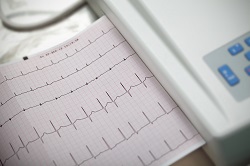New diagnostic tools give hope to heart patients
Atrial fibrillation (AF) – a condition that causes abnormal heart rhythm – affects up to 2 % of the European population and increases the risk of stroke, heart failure and death. Europe’s ageing population means that the prevalence of AF is expected to increase, which will put further pressure on Europe’s stretched health services. In order to address this, the EU-funded EUTRAF project has sought to develop new methods for ensuring earlier diagnoses of AF, thereby making clinical interventions easier and more successful. As well as improving patient care through early diagnostics and treatment, the project, which was officially completed in November 2015, is expected to decrease the cost of current AF management. The project has also been involved in some ground breaking trials. One key finding has been that giving daily doses of statins for a few days before and after heart surgery does not prevent the development of AF and can actually increase the risk of developing kidney damage. The results of this trial, part funded by the EUTRAF project, were published in May 2016 in the New England Journal of Medicine (NEJM). ‘Statins have been known to have rapid anti-inflammatory and antioxidant effects for many years,’ says Professor Barbara Casadei, who led the research at the University of Oxford in collaboration with the British Heart Foundation. ‘Although guidelines currently recommend statins at the time of heart surgery to reduce complications, the evidence was not very strong. The results of our large randomised placebo-controlled trial conclusively prove that there are no benefits to taking statins shortly before and after heart surgery to reduce postoperative complications but there is an adverse effect on kidney function.’ This discovery could lead to a change in international guidelines on preventing AF and other complications following heart surgery. The findings do not however challenge the strong evidence that long-term treatment with statins reduces heart attack and stroke risk. The EUTRAF project, which received nearly EUR 12 million in EU funding, began in 2010 by studying the causes, progression and treatment of AF. From this, new biomarkers and novel ion channels and transporters for future therapies were identified. Research on animal models to better understand atrial blood flow regulation and possible genetic components of AF has also been carried out. From this initial research, new real-time automatic fibrillation analysis techniques, novel treatment options and non-invasive diagnostics tools have been developed. In addition, the project has pioneered the development of a Clinical Decision Support module mobile app. EUTRAF has been a pioneer of using information technology to support the prediction and prevention of various consequences of AF, such as stroke and thromboembolism. The project also carried out pre-clinical studies into new ways of measuring fibrosis and atrial fat infiltration, and demonstrated that electrocardiogram-derived atrial complexity parameters could be used to predict the outcome of various therapies with increased accuracy. For further information please visit: EUTRAF project website
Countries
United Kingdom



